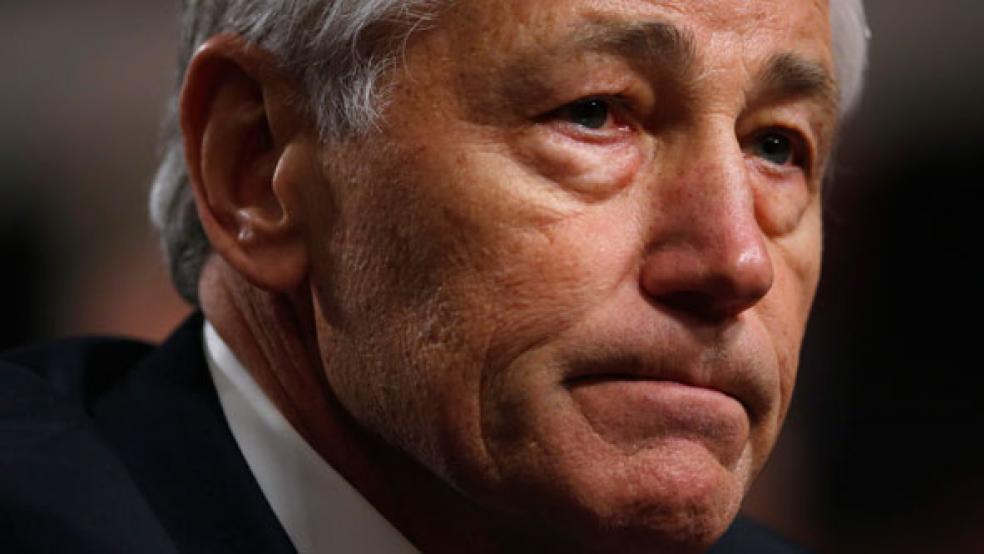The White House and GOP lawmakers are getting ready to -- once again -- not work together on taxes and spending cuts. As the month-long count begins for the start of $85.3 billion in automatic budget cuts, the old brinksmanship is back.
Democrats will press for additional tax hikes on wealthier Americans, even though Republicans declared that option was off the table after acceding to roughly $700 billion in new revenues over the next ten years as part of the New Year’s Day fiscal cliff deal.
But this time, President Obama lacks a critical piece of leverage. The GOP joined with Democrats on the tax increase only to protect middle-class Americans from rates that were set to surge for everyone. Their bargain prevented higher taxes on families with incomes below $450,000.
Still, the president and Senate Majority Leader Harry Reid, D-Nev., are undeterred. Both announced over the weekend that any part of a plan to reduce the deficit should include new revenues, such as eliminating the “carried interest” tax rate for investment managers and other lucrative loopholes.
"There is no doubt we need additional revenue, coupled with smart spending reductions in order to bring down our deficit,” Obama said in an interview with CBS News before the Super Bowl. "And we can do it in a gradual way so that it doesn't have a huge impact.”
Obama didn’t spell out how he’ll sway the GOP to his way of thinking. After the fiscal cliff tax deal, Senate Minority Leader Mitch McConnell said, “The tax issue is finished, over, completed.”
THE PRICE OF A STALEMATE
The stalemate could have serious real world consequences in a matter of weeks. More than $85 billion of across the board spending cuts in defense and domestic programs or“sequestration” are set to kick in automatically beginning March 1 unless Congress and the administration take action. The Bipartisan Policy Center estimates that at least a million jobs will be lost this year and next because of the slowdown caused by withdrawing so much money from the economy.
Further complicating the problem is that the entire government is operating under a continuing resolution that is due to expire March 27. House Budget Committee Chairman Paul Ryan, R-Wis., claims there will be no government shutdown, but a series of endless continuing resolutions would only institutionalize the gridlock.
Not surprisingly, the political airwaves are filled with bombast and ultimatums as the two sides position themselves for the latest chapter in the long running Washington fiscal melodrama.
“You have both sides taking out their strongest positions at this point, so the Democrats want to spend more through tax reform and increased revenue and the Republicans clearly want to cut spending,” Republican political strategist Ron Bonjean told the Fiscal Times today. “I think the closer they get to sequestration, there may be more detailed negotiations. But right now you have the beginning of the kabuki dance.”
Others see a more profound shift in relative bargaining strength of the White House and Republican leaders, with the GOP gaining the upper hand. Back in late December, the expiration of the Bush-era tax rates enabled Obama to push for an increase on the wealthiest Americans to preserve the lower rates for 99 percent of the nation.
And while many Republicans adamantly oppose the automatic sequestered cuts in defense, some apparently prefer them to the alternative of higher tax revenue through loophole closings. Both Ryan and Sen. Tom Coburn, R-Okla., have said the sequester will happen, despite past efforts within the GOP to avoid it.
“So the nature of the action has shifted fundamentally from the Republicans having to try to find a way to stop something from happening to the President having to try to make something happen,” said J.D. Foster, an economist with the conservative Heritage Foundation. “That’s much more difficult for the president to achieve.
“There is a lot of interest in trying to recast the sequestration so you get the same level of savings in a different form,” he continued, “but nobody really is ready to stand up and say this is how we should cut spending elsewhere to deal with it. So absent a solution, the sequestration remains the default.”
In his interview over the weekend, Obama indicated he would seek to end deductions that are not available to all Americans, singling out "carried interest," which refers to the tax rate paid by many private equity managers, venture capital and real estate partnerships. Obama and many Democrats have repeatedly criticized the tax break as unfair and called for carried interest to be taxed as ordinary income. The tax break was the key reason for the low tax rate paid by Obama's 2012 Republican presidential challenger, former Massachusetts governor and private equity executive Mitt Romney.
"We just want to make sure that the whole system is fair, that it's transparent, and that we're reducing our deficit in a way that doesn't hamper growth," Obama said.





